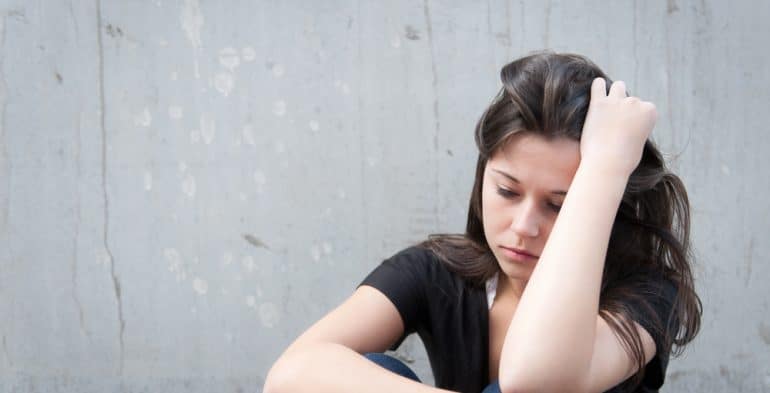
What is depression?
Depression is a very common mental illness with no single cause. The illness can be triggered by a hormonal imbalance, such as low levels of serotonin in the brain, it can also be caused by situations such as death of a loved one or having a long-term illness. Some research also supports that depression can be genetic, or a result of growing up with a parent who suffers from the illness. Depression can also be induced by your lifestyle, such as taking medication, recreational drugs, unhealthy eating or lack of activity.
What are the symptoms of depression?
Depression occurs on a large spectrum of severities, and different people will suffer in different ways. Here are some of the symptoms of depression that a sufferer might endure.
- Lack of energy or will to do anything productive
- Loss of interest in things you were formerly passionate about
- Low self esteem
- Self-loathing
- Thoughts of taking your own life or physically harming yourself
- Feeling worthless
- Excessive sleeping
- Sleep insomnia
- Increased appetite (turning to food as a source of comfort)
- Decreased appetite and weight loss
- Difficulty in coping with day to day life
- Lack of motivation
- Feeling isolated and lonely
- Slowed speech and movements
- Struggling to focus
- Regular tearfulness and feelings of distress
What can cause depression during pregnancy?
Although your friends and family may be ecstatic at the news of your pregnancy, you might find the concept of bringing life into the world and being responsible for another life overwhelming, resulting in overwhelming fearful or stressful thoughts and emotions. If you or family members have suffered from mental health problems before, your pregnancy may trigger a relapse, especially if you feel financially insecure or that you are in an unstable relationship with your significant other or family members. Physical side effects of pregnancy such as fatigue, morning sickness or sleep insomnia could also lead to this condition. Previous pregnancy complications or infertility would also make an expecting mother feel very concerned and anxious.
How to cope with depression during pregnancy
There are many things you can do to reduce your depression during pregnancy (as well as before and after your pregnancy!). The key thing is to express your emotions to a loved one or friend, or even a counsellor. The worst thing to do is bottle up your feelings. Know that depression is not something to be embarrassed or ashamed of, your feelings are not ridiculous. You cannot control your feelings. Invest time in looking after yourself, participate in light sport and activities, exercise releases endorphins which are chemicals in your body that make you feel happier. Try to meditate or read about emotional well-being. If something like not having a room prepared for your baby, then take action and prepare a room or talk to someone who can help you.









